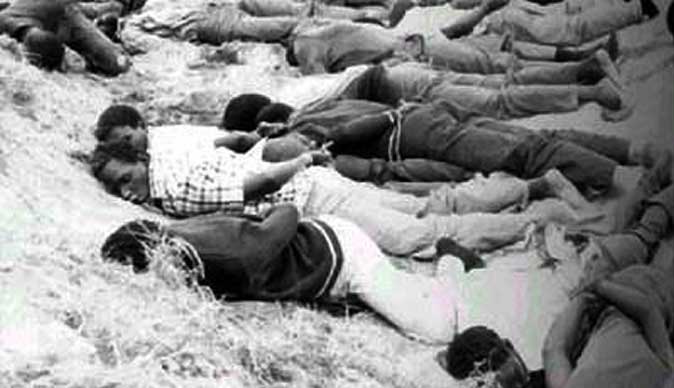
BY NQOBANI NDLOVU
Zimbabwe does not need any Patriotic Act before resolving the country’s dark past, particularly the Gukurahundi massacres, parliamentarians argued last week as they dismissed a motion pushing for the law as disappointing.
Zanu PF secretary for youth affairs Pupurai Togarepi first suggested the need for a Patriotic Act in 2018 to ostensibly prosecute Zimbabweans that speak ill of the country and advocate for economic sanctions.
The Cabinet committee on National Peace and Reconciliation in August 2020 tasked the Justice, Legal and Parliamentary Affairs ministry to draft principles of the law.
In October 2020, Justice, Legal and Parliamentary Affairs permanent secretary Virginia Mabhiza said principles of the Patriotic Bill had been drafted.
However, parliamentarians said pushing for such an Act before finding redress to the country’s dark human rights past, in particular the Gukurahundi massacres that claimed approximately 20 000 lives, was regrettable.
“There are a lot of unresolved issues in this country that need to be addressed by this Parliament. If it is indeed the people’s Parliament, it must be sensitive to the reality of the issues on the ground.
“For us to debate this kind of motion is a very disappointing situation for the Parliament of Zimbabwe,” Hwange Central opposition legislator Daniel Molokele said in his contribution to a debate on the motion advocating for the law.
- Chamisa under fire over US$120K donation
- Mavhunga puts DeMbare into Chibuku quarterfinals
- Pension funds bet on Cabora Bassa oilfields
- Councils defy govt fire tender directive
Keep Reading
“Decisions made in the past have brought so much pain to the people of Zimbabwe….
“So you cannot as Parliament of Zimbabwe come back to the people of Matabeleland and Midlands, who were victimised in this country and teach them about patriotism before you address the issues that affect them today.
“You cannot preach patriotism to them. You need to address the situation on the ground.”
Gukurahundi remains unresolved.
President Emmerson Mnangagwa has opened debate on the emotive issue, meeting the clergy, traditional leaders, civic groups and traditional leaders, but recommendations to address the killings remain on paper.
In his contribution, Togarepi argued Zimbabwe badly need the Act to “ostensibly protect the Zimbabwean brand” as he drew parallels with the United States of America that has similar laws, the Logan Act in particular.
“Once that image is butchered or soiled, no one wants to do business with us and no one wants to work with us,” Togarepi argued.
The Logan Act promulgated in 1799 criminalises negotiation through correspondence or communication by unauthorised American citizens with foreign governments having a dispute with the United States.
The Act was a direct response to the private efforts of George Logan to negotiate peace between America and France during an undeclared naval war between 1798 and 1800.
“We cannot force our citizens to be patriotic and we cannot legislate laws to force people to be patriotic,” Molokele said.
“So I am totally disappointed by this motion and this whole talk about patriotism which is forced onto the people.
This talk about patriotism is misplaced and it should not be allowed to continue in this Parliament, in my view.
“Patriotism would only be promoted if everyone is treated equally before the law.”
Willias Madzimure argued a patriotic Zimbabwe “is not built on such a foundation” where there had been no Gukurahundi redress.
“People still have wounds and we are saying let us forget about it and move on,” Madzimure said.
“A patriotic Zimbabwean is not built on such a foundation.
“There is no foundation to build from.”











